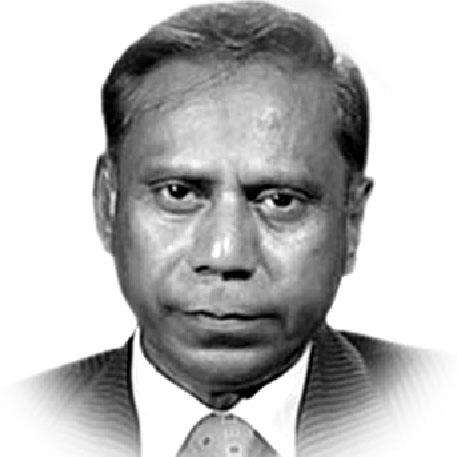Sultan M Hali
HONG Kong, generally known as the “Pearl of the Orient” is currently embroiled in protests which have lasted over two months. Most Pakistanis wonder as to “what ails Hong Kong?” H.E. Yao Jing, Chinese Ambassador to Pakistan, in his Op-Ed ‘What is Happening in Hong Kong?’ sheds light on the issue. Hong Kong became a part of the British Empire as a result of the ‘Opium Wars’ in 1842 under a treaty which made it one of the jewels of the British Crown in the late 19th and most of the 20th century. When Britain handed Hong Kong back to China in 1997 Hong Kong became a part of the People’s Republic of China. It was agreed that there would be a 50-year period in which British and Chinese “systems” would coexist, but it was also accepted that Hong Kong would become fully Sinicised after 50 years. It was never envisaged that some Hongkongers would reject Sinicisation, engage in political mayhem and damage the economy and political fabric of Hong Kong.
Prior to the change of status of Hong Kong in 1997, Deng Xiaoping had announced in 1984, a policy of “one country, two systems.” More specifically, this means that within the People’s Republic of China, the mainland with its 1 billion people will maintain the socialist system, while Hong Kong and Taiwan continue under the capitalist system. Continuing not only as an important international financial, trade, shipping hub and international innovation and technology centre, Hong Kong is also one of the freest economies and the most competitive cities in the world. Its unique position bridges mainland China and the Occident. The current turmoil arose because the Hong Kong Special Administrative Region (SAR) Government’s proposed amendment bills to the Fugitive Offenders Ordinance and the Mutual Legal Assistance in Criminal Matters Ordinance, to apprehend fugitives and criminals who fled to territories with whom Hong Kong did not have an extradition treaty. The purely constitutional move was misinterpreted leading to a series of demonstrations and violent incidents in Hong Kong.
In the past two decades-plus, since the return of Hong Kong to China, the island state has achieved universally recognized success. In 2018, the total economic volume of Hong Kong was $360 billion, more than twice that of 1996; the number of visitors to Hong Kong exceeded 65 million, six times that of 1997; the international ranking of legal environment jumped from lower than 60th in 1996 to 16th in 2018. Hong Kong has been voted as the world’s freest economy for 20 consecutive years. After the return, Hong Kong’s own characteristics and advantages have been maintained. The people of Hong Kong enjoy more extensive democratic rights and freedom than under British rule. Under the system of “one country, two systems”, the central government and the mainland China have been a strong support to Hong Kong’s development. Hong Kong SAR will usher in a better future with the “One Belt, One Road” initiative and the development of the Guangdong-Hong Kong-Macao Greater Bay Area.
Relenting to public pressure, the Hong Kong SAR government suspended the proposed amendments, but the tension did not subside. Contrarily they heightened, giving rise to the fear that external elements were stoking the fires. The statistics of casualties in the past sixty days speak for themselves. 461 people have been injured in violent conflicts, including 139 police officers. Maliciously, some violent radicals tore up The Basic Law of the Hong Kong SAR, defamed Chinese national emblem and national flag, seriously violating the law and making a mockery of the “one country, two systems” principle.
The protests and violent attacks have also caused serious negative impact on Hong Kong’s economy and people’s livelihood. According to the statistics of the government of Hong Kong SAR, the economic indicators of Hong Kong in the first six months of this year have rarely fallen across the board except for a few industries. The gross domestic product of Hong Kong in the second quarter increased by only 0.6 percent in real terms year on year. 18 countries and regions have issued travel safety reminders against Hong Kong. The current situation in Hong Kong has seriously eroded the confidence of international investors who have publicly expressed their deep concern about the business environment in Hong Kong.
China’s detractors are having a field day besmirching Chinese leadership, which has demonstrated restraint so far while the external progenitors of the chaos incite the activists. The Chinese central government has so far unswervingly safeguarded its national sovereignty and Hong Kong’s prosperity and stability, and resolutely backs the government of Hong Kong SAR in its administration according to the laws and regulations, supports the Hong Kong police in law enforcement and the Hong Kong Judiciary to punish violent criminals in accordance with the law, and appreciates the action of the patriotic citizens of Hong Kong to defend the rule of law in Hong Kong.
External observers and the so-called “human rights activists” should take cognizance of the fact that the events taking place in Hong Kong are China’s internal affairs. China will not tolerate the intervention of external forces. The Chinese central government has solemnly demanded that certain countries should abide by the basic norms of international law, international relations and their own commitments not to intervene in Hong Kong affairs and stop supporting violence and interfering in Hong Kong affairs in any form. Let the democratic principles resolve the dissension.
—The writer is retired PAF Group Captain and a TV talk show host.









